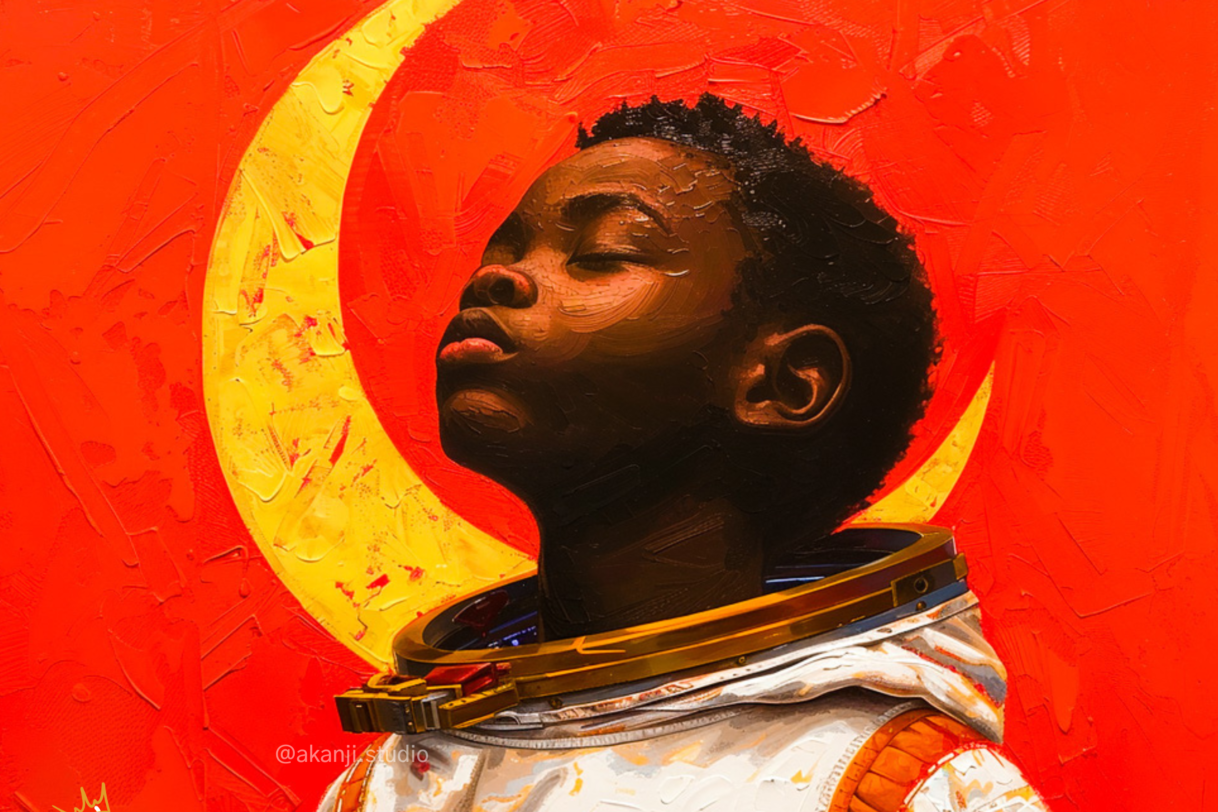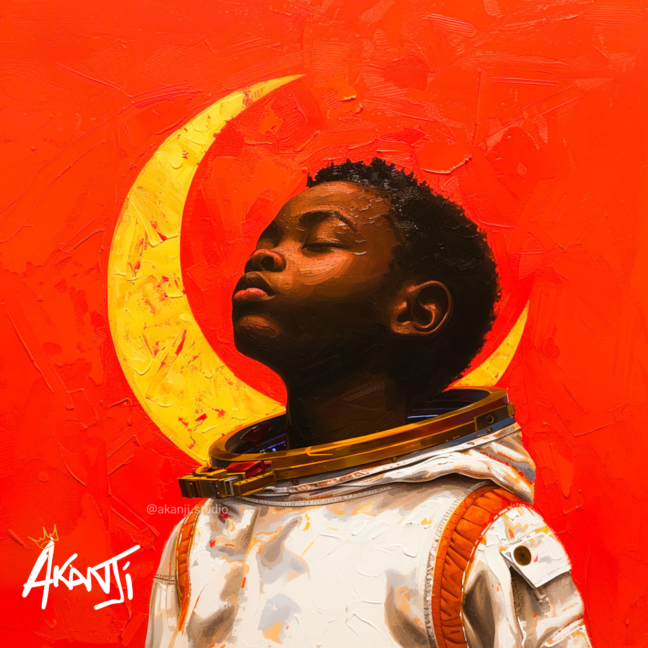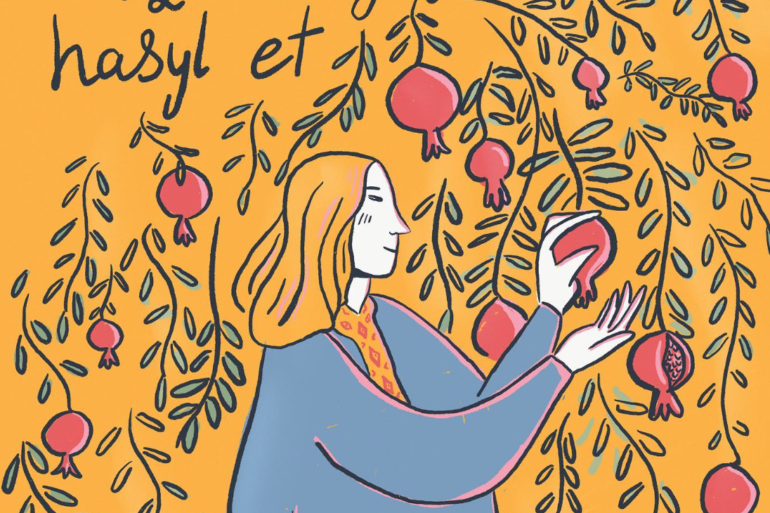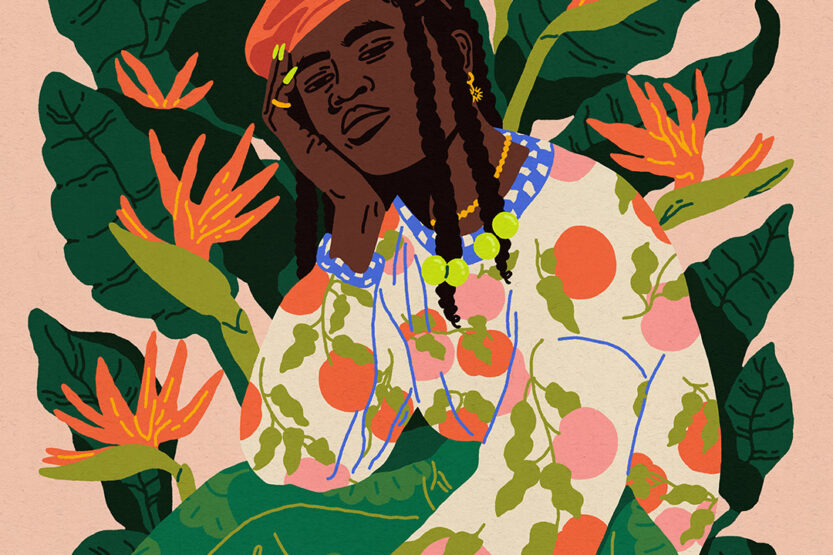Akanji Studio by Richard Akanji Amole is an AI research lab and production studio advocating for better support and resources for those affected by sickle cell disorder.
How has your lived experience shaped your practice?
My lived experience, particularly navigating life with sickle cell disease, serves as a cornerstone in my digital art practice. It’s a journey that’s deeply ingrained in every art piece. Through digital art and poetry, I’ve found powerful mediums to express the nuances of my experiences and emotions. Each piece reflects not only my personal struggles but also my resilience and hope. My digital canvases and poetic verses become platforms for storytelling, advocacy, and community-building within the sickle cell community and beyond. This fusion of technology, creativity, and storytelling allows me to transcend my physical limitations, connecting with audiences worldwide and fostering empathy and understanding. In essence, my lived experience fuels every expression in the digital and physical realm, shaping not only my art but also my mission to raise awareness, inspire change, and spark meaningful conversations.
What are some of your biggest influences and motivations in your work? What issues are you passionate about working on?
My biggest influences and motivations stem from a tapestry of experiences, both challenging and uplifting. Growing up within the Yoruba tribe, my cultural heritage and ancestral wisdom deeply inform my perspective and artistic expression. Childhood trauma intertwined with managing sickle cell disease has been a crucible, shaping my resilience and creativity. My faith journey, anchored in Christ, provides solace and inspiration, guiding me through life’s trials and triumphs.
These influences converge in my work, where I’m passionate about addressing the stigma and challenges surrounding sickle cell disease. My digital art serves as a vehicle to amplify the voices of the sickle cell community, shedding light on their experiences and advocating for greater awareness and support. I’m driven to foster empathy, understanding, and empowerment within this community and beyond, transcending barriers and igniting meaningful conversations about health, diversity, and inclusion.
Can you tell us a bit more about your focus sci fi and world building?
In my creative journey, I fuse Afro-futurism and Afro-surrealism to envision a future where African voices resonate globally. Drawing from my Yoruba heritage and ancestral wisdom, I infuse storytelling and poetry to shape immersive worlds and narratives. Utilising modern digital tools like machine learning, I amplify the voices of underrepresented communities, weaving their stories into the fabric of tomorrow.
Where are you based and what excites you about the creative community around you?
I’m based in London, a vibrant melting pot of cultures and creativity. What excites me most is the rich diversity of perspectives and talents that converge here. The cross-collaboration among creatives from diverse backgrounds fuels innovation and pushes boundaries. Additionally, the contrast between London’s two class systems adds a dynamic layer to the creative landscape, inspiring me to explore themes of social justice and equity through my expressions.
Find out more about Akanji Studio HERE



















